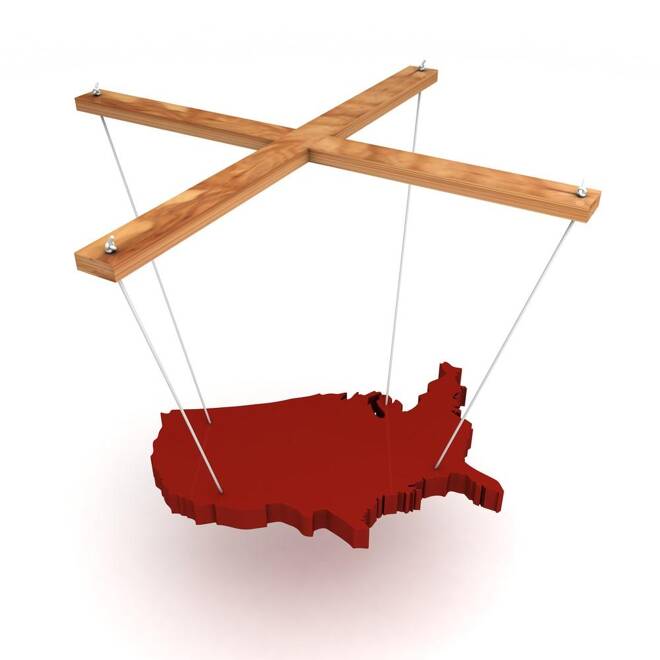Advertisement
Advertisement
Will China’s Government Intervention Sustain Market Recovery
Updated: Aug 11, 2015, 09:11 GMT+00:00
The Chinese stock market turmoil has been the talk of the international market lately and it seems this would be the case in the coming weeks. China's
The Chinese stock market turmoil has been the talk of the international market lately and it seems this would be the case in the coming weeks. China’s government, in hopes of reviving their local market, has done extensive measures and efforts just to minimize panic among the market participants. Despite these efforts, the Chinese market stays off its peak.
The government’s interventions may have lessened unfavorable circumstances in the country’s stock market, however, evaluation of such actions is deemed necessary. Is it worth the price to pay? More importantly, is a recovery still feasible?
Chinese stock market
Although the organized support of the stock market is something that is typically done to prevent widespread panic, even the efforts that worked before are not really a shining proof of the power of stock market intervention.
For instance, JP Morgan organized a group of financiers to prevent a market collapse during the Panic of 1907, but the US market that they somehow “saved” slumped by over 40% from its peak before it was stabilized. Another example was the Hong Kong government’s intervention, which improved the Asian market crisis experienced in the late 1990s. By the time the government was able to prevent further decline, the Hang Seng had already plunged by two-thirds.
From history, we have learned that support is likely to work best if there is some kind of a limited situation. The market intervention will be effective, provided that the support is greater than the failing entity.
China’s stock market crash
Now, what will happen if the problem is bigger than merely a single market shock? What will happen if the entire market became unstable because naïve market participants have pushed asset prices to unsustainable levels that cannot be supported by the economic activity? If that is the case, it appears like the market intervention just delays the inevitable market correction.
However, normal rules do not often seem to apply to the Asian country. Take for example the banking system of China, which seemed vulnerable to a collapse a few years ago. The Chinese government implements control at so many levels that it is challenging to determine the normal routes by which crises take place.
The Chinese government can simply declare that the banking system is sound and make it as such, but the same thing cannot be done with the stock market.
Sure, the government of China could also declare the stock prices to be whatever it wants and pledge funds to make it possible, but that won’t end there. Having the government purchase all the shares would remove the point of having a stock market.
Chinese Government
The Asian country’s government is unusually open about its efforts to keep the stock market strong. Perhaps, the intention is to promote market confidence by showing that the government won’t let things get out of control.
The Chinese government should keep in mind that overpriced assets will eventually be pulled back by the underlying cash flows to a more realistic level. Furthermore, they should remember that the outcome of the organized support during the 1930s was that the organizers accumulated huge losses. If the government of China does not take caution, it is possible that it will meet a similar fate.
Effects on Chinese Businesses
Since mid-June, the country’s stock market has declined an estimated $3.2 trillion in value when a sell-off began. Moreover, China’s stock market has shed 30 percent last month alone. It’s also interesting to note that even US-listed Chinese companies are now affected by China’s gloomy market condition. This wasn’t the case in the old days, but it’s likely that the growing fear of the continued market plunge has signaled a bigger economic misfortune for the Chinese market.
Alibaba Group, China’s e-commerce giant, was among the US-listed Chinese stock that was affected negatively due to the market crash. Last month, it even hit a session-low of $76.21, its weakest price ever since its IPO last year.
As we can see on the graph, Alibaba has hit its all-time low since July, remarkably right after the Chinese stock market’s slump. Alibaba will be covering the gap at 85.30 and 81.47. We can also see that the ADMI and MFI indicators are starting to go up.
TradingBanks reviews and evaluates this kind of events, so visit our website www.tradingbanks.com everyday to stay informed.
About the Author
FX Empire editorial team consists of professional analysts with a combined experience of over 45 years in the financial markets, spanning various fields including the equity, forex, commodities, futures and cryptocurrencies markets.
Advertisement
